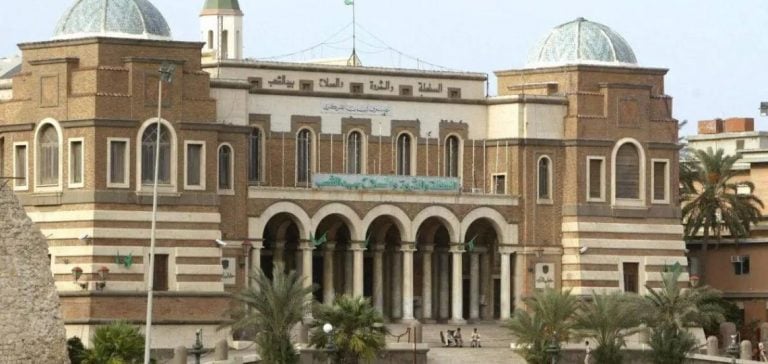The Central Bank of Libya, a key institution for managing oil revenues, is the subject of power struggles between the country’s two rival governments: the Government of National Unity (GNU) in Tripoli and the Parliament in Benghazi. For months, tensions surrounding the succession of the current governor, Sadiq al-Kabir, have exacerbated the economic crisis, culminating in a blockage of oil exports. These tensions intensified when the President of the Presidential Council, Mohammed al-Menfi, attempted to replace al-Kabir, in office since 2011.
Eastern factions responded by blockading the country’s main oil fields, leading to a significant drop in production.
In August 2024, the National Oil Corporation (NOC) announced a production cut of over 50%, from 1.2 million barrels per day (b/d) to around 500,000 b/d.
Impact on oil production and public finances
Oil accounts for around 95% of Libya’s tax revenues, making control of the Central Bank all the more strategic.
The sharp drop in production has caused considerable financial losses, estimated at between $50 and $70 million a day.
Immediate consequences include a drastic reduction in government revenues, putting further pressure on an already strained budget.
Without a rapid return to normal, the Libyan economy could face an even more unstable situation, threatening the stability of public infrastructure and the payment of public sector salaries.
The Central Bank plays a vital role in managing oil revenues, which finance a large proportion of public services and subsidies.
The agreement on the new management of the institution aims to revive these financial flows, in particular by enabling the resumption of oil exports, essential for the survival of the country’s economy.
The strategic importance of the Central Bank
The United Nations Support Mission in Libya (UNSMIL) oversaw the negotiations that led to the agreement on the Central Bank.
However, the process remains delicate.
Political tensions surrounding the replacement of Sadiq al-Kabir are far from resolved, and disagreements over the candidates to succeed him could still jeopardize the implementation of the agreement.
Replacing the governor is seen as a crucial step in appeasing the eastern factions, who accuse al-Kabir of favoring Tripoli’s interests.
The appointment of his successor will be decisive not only in restoring the balance of power between the two camps, but also in ensuring a fair distribution of oil revenues between the regions.
Impact on the global oil market
Internationally, the situation in Libya continues to influence the oil market.
Although Libya accounts for only a small share of world production, it is a key supplier for several European countries, notably Italy, Spain and France.
Any prolonged interruption in Libyan production has repercussions on crude oil prices, particularly in southern Europe.
A return to normal production, conditional on the lifting of the oilfield blockade, could partially stabilize prices on international markets.
However, the Libyan crisis, in conjunction with other factors such as OPEC+ production cuts and the war in Ukraine, is still weighing on oil supply prospects.
Key figures and economic analyses
Oil production in Libya, down to 500,000 b/d in August 2024, represents a loss of almost 60% of its usual capacity.
Exports to key partners, such as Italy and France, fell by 25%, undermining revenue prospects for the end of 2024.
By 2022, Libya’s oil revenues had reached $22 billion, but this production cutback could lead to an estimated loss of between $10 and $12 billion if the situation is not quickly restored.
The economic losses caused by this interruption increase the country’s dependence on international financing, notably from the IMF and the World Bank.
These organizations have already expressed concern about Libya’s economic viability if the oil crisis continues.
The agreement on the Central Bank and the appointment of new leaders offer some hope of recovery for Libya, but the country’s long-term stability remains uncertain as long as the underlying political process remains fragile.
For the energy sector, Libya remains a key player, but its potential can only be fully exploited if a lasting solution to this crisis is found.






















